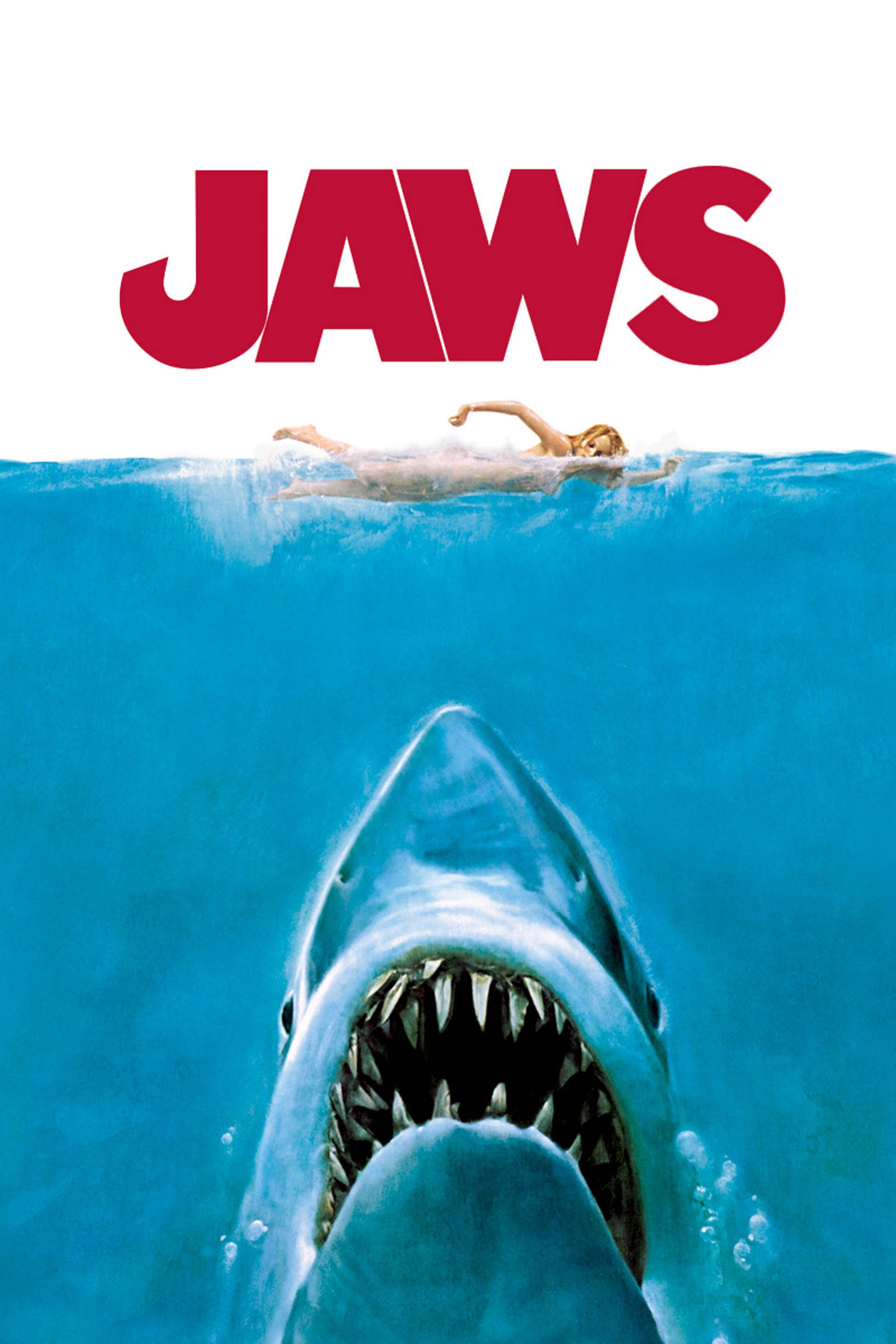Universal Pictures, 1975; Directed by Steven Spielberg; Starring Roy Scheider, Richard Dreyfuss, and Robert Shaw; PG.

Summary:
Jaws premiered in 1975 and was simultaneously responsible for two milestones: individuals across the country being afraid to enter the ocean, and the creation of the first summer “blockbuster.” Jaws was the world’s highest-grossing film until Star Wars. Based on the novel by Peter Benchley, Jaws was one of the first films directed by a 28-year-old Steven Spielberg. Plagued by a mutinous and cantankerous crew, an expensive electronic shark that refused to function, an insufficient budget, and an overextended filming schedule, the film eventually worked and is now recognized as one of Spielberg’s greatest. Jaws won three Academy Awards and made famous the line, “You’re gonna need a bigger boat,” which was improvised by Roy Scheider playing Martin Brody, the police chief of an island resort town terrorized by a man-, woman-, and child-eating great white shark. Brody, who is afraid of the water, battles not only nature but also politics, embodied by a stubborn and shortsighted mayor. What follows is a classic tale of man versus nature, where an oceanographer and a shark hunter join Brody, in a modern-day Moby Dick.
Themes, Symbols, & Motifs:
- Minimalism. Because of a malfunctioning machine, the shark could only intermittently appear, or else was hinted at by a fin, floating yellow barrels, or a moving dock.
- Under the Surface. Not only is the shark under the ocean’s surface, but each of the three characters in the film’s third act has a different motivation deep down for hunting the shark.
- Animal as Machine. Hooper says, “[W]hat we are dealing with here is a perfect engine, an eating machine. It’s really a miracle of evolution.”
- Amity. The town’s name is Amity, which means “friendship.” The friendly town is besieged by a shark on Fourth of July weekend, Amity’s financial lifeblood.
- Problem Solving. Journalist Neil Gabler saw the main characters as each attempting to solve the shark problem differently: Hooper uses science, Quint spiritualism, and Brody is the common man. Brody’s method prevails.
Discussion Questions:
- John Williams won an Oscar for the score. How does the music affect one’s viewing of the film?
- What genre is this film? Thriller, horror, science fiction, adventure, or monster movie? Why is it hard to classify?
- What is the significance of Quint’s boat being named the Orca?
- Quint survived the sinking of the USS Indianapolis, the Navy ship that delivered parts of the world’s first atomic bomb, the one dropped on Hiroshima. Why is his monologue in the film?
- What makes this movie such a classic? Is it just an average story elevated by a brilliant director?
- Discuss the film’s camerawork: reverse zooms, ocean shots, shots from the shark’s POV (primarily because the shark was broken), water level shots like treading water, avoiding filming land during the hunt, etc.